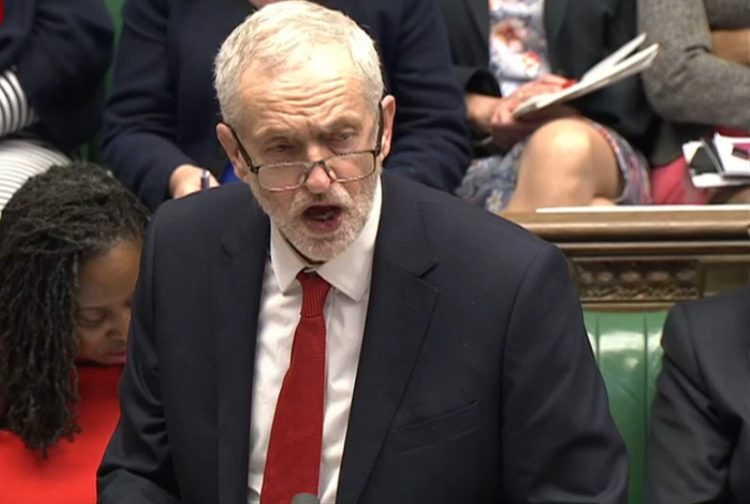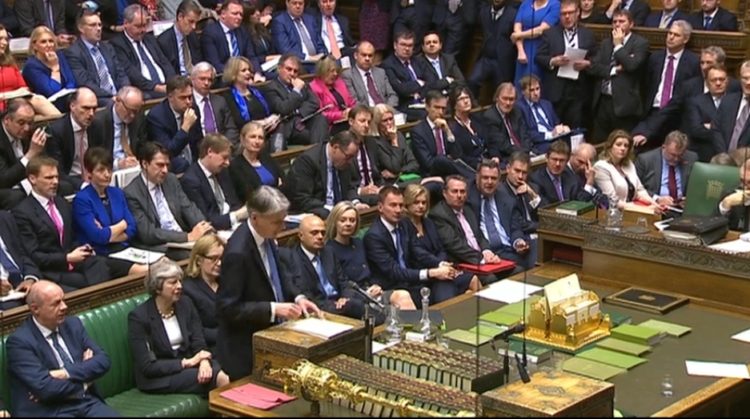Chancellor Philip Hammond unveiled plans for the fund in his Autumn Budget and added half the fund will be ringfenced for the six city regions that elected Metro Mayors this year, including Liverpool. Tony McDonough reports

Liverpool city region is to get access to a £1.7bn Transforming Cities fund to boost transport infrastructure.
Chancellor Philip Hammond unveiled plans for the fund in his Autumn Budget and added half the fund will be ringfenced for the six city regions that elected Metro Mayors this year, including Liverpool.
The other half well be open to applications from cities across the UK, Mr Hammond said.
He also announced a £28m ‘Housing First’ pilot scheme to tackle rough sleeping in Liverpool, Manchester and Birmingham.
Mr Hammond revealed that the Office for Budget Responsibility (OBR) had downgraded UK economic forecasts to 1.5% in 2017, 1.4% in 2018, 1.3% in 2019 and 2020, back up to 1.5% in 2021 and rising to 1.6% in 2022.
2017 Autumn Budget at a glance – click here
However, he also said borrowing would fall over the next few years, albeit slow than had been previously forecast. He also set aside an extra £3bn for possible economic shocks caused by Brexit.
And he gave some cheer to first-time homebuyers by exempting them from Stamp Duty for transactions up to £300,000.

In response to the Budget, Labour leader Jeremy Corbyn said the test of any Budget is “will people be better off?”. He added: “I think we will find in a few days very few people will be.
Mr Corbyn added: “The failed and damaging policy of austerity remains… too many are experiencing long-term economic pain.”
Peter Taaffe, managing partner of Liverpool accountancy firm BWM, gave a cautious welcome to the £1.7bn Transforming Cities fund, adding more was needed.
He said: “This is a good start but the Chancellor has ringfenced half of that for the six devolved city regions, including Liverpool, so once that gets divided up it starts to look a lot smaller. Funding for regional transport infrastructure needs to be substantial and ongoing.”
Mr Taaffe was more enthusiastic about the Chancellor’s pledge of £500m for 5G mobile networks fibre broadband and artificial intelligence as well as the extra £2.3bn for research and development.
He said: “At BWM we have been pioneers in the accountancy sector for digital innovation, investing in services such as virtual FD software. The pace of technological change across all business sectors means firms large and small cannot afford to be complacent or to stand still.
“The message we have been giving to all our clients is that they need to be ready for this new age, making the point that by embracing technological change they can significantly boost efficiency and profitability.
“Raising the R&D tax credit to 12% is really good news as we make these tax credit claims on behalf of clients and as an under-utilised relief it’s good to see this topic getting exposure in the Budget.”
There was some welcome for the Chancellor’s move to cut stamp duty for first time buyers on transactions up to £300,000.
Michelle Langan, founder of the Paper Cup Project, which sends volunteers out onto Liverpool’s streets to help rough sleepers has long called for the Housing First Scheme. She said: “I’m delighted that Housing First is finally being considered by politicians as a serious solution to tackling homelessness. Looking forward to Liverpool and Manchester leading the way here.”
Paul Bibby, managing partner of Liverpool law firm MSB Solicitors, said: “I can see little down side to the announcement on Stamp Duty which is a disproportionate part of the costs of buying a first home and, unlike people who are both buying and selling at the same time, it cannot be funded from equity.
“I’ve already seen a suggestion that it may increase the cost of a house but in our region that is a fallacy. As an incentive to get on the housing ladder now it’s a good thing.”

Alan Cotterill, a mortgage adviser with JustMortgages based in Wirral, said: “The headlines were the additional investment of £44bn from the Government in Loan Guarantees and incentives to builders and developers to meet a target of an extra 300,000 new homes being built per annum by 2020.
“Keeping in mind that similar target have, in the past, been set and missed by successive parties in power.”
On the the Stamp Duty change, he added: “The very good news being this will have a very positive effect on most first-time Buyers locally.”
Helen Griffin-Booth, director at Liverpool-based sales, lettings and investment agency Bluerow Homes says: “The move to abolish Stamp Duty for first time buyers is a great announcement which will go some way to helping aspiring homebuyers get on to the property ladder.
“With the Chancellor himself stating that the number of 25-34 year olds has dropped to just 38% over the last 13 years, hopefully this measure will keep the market moving and give prospective homeowners a more positive, optimistic outlook to owning their own home.”
Developer Daniel Hynd, managing director of Promenade Estates, described the Budget as a “missed opportunity from a regional perspective”.
He added: “There was far too little for regional economies. £134m for Liverpool for transport initiatives, whilst welcome, is a drop in the ocean. The disparity between London and the regional economies demanded a full-throated response, and what we got was a mildly embarrassed cough.
Mark Rathbone, head of corporate at law firm Brabners’ Liverpool office, said: “The Chancellor’s £1.7bn ‘Transforming Cities Fund’ is positive and adds some meat to the bones of the government’s commitments to ‘future-proof’ northern transport made at the party conference – even if this is a paltry sum compared to planned expenditure in London and the South East.
“I look forward to seeing how the metro mayors work together within the Northern Powerhouse framework to ensure this fund creates a more connected region.”

Adam Hall, managing director of Liverpool architects Falconer Chester Hall, was quite positive, saying: “Make no mistake: that was a budget for the development sector. The focus on high density urban development, particularly around transport hubs, makes absolute sense.
“Cities are where the jobs are created and people want to live and top marks for recognising that a lot of potentially productive land is unviable because of historic contamination.
“The £1.1bn strategic sites fund is a step in the right direction, but I would have expected it to be larger. It will help councils and developers meet remediation costs and enable more urban brownfield sites to be developed.
“I’d expect numerous councils in the North West to be scrambling for the application rules right now.”
Dean Ward, co-founder and chief technology officer at Wirral digital retail tech design-manufacturer, Evoke Creative, said: “While not a giveaway budget, the R&D tax credit increase is welcome news.
“It will be well-received by innovative SMEs working in the UK’s digital technology sector. So too will the £500m pot of funding being made available to support the development of transformative technologies like AI and machine learning.
“But as a growing and internationally trading business, shipping our digital kiosks not only across Europe, but also to China and the US, there was little reassurance that the Government has a firm plan to support British exporters in the face of Brexit.”
Simon Reid, sector manager for advanced manufacturing at the Liverpool City Region LEP, said: “I welcome the Government’s focus on productivity and research and development. In the Liverpool city region, we have been focusing on manufacturing productivity growth since 2013 and the transformative effect innovation can have on the earning potential of a company.
“By helping small and medium sized companies to adopt industrial digitisation to innovate products, processes and access new markets, we can close the productivity gap with the rest of Europe and the world.”
